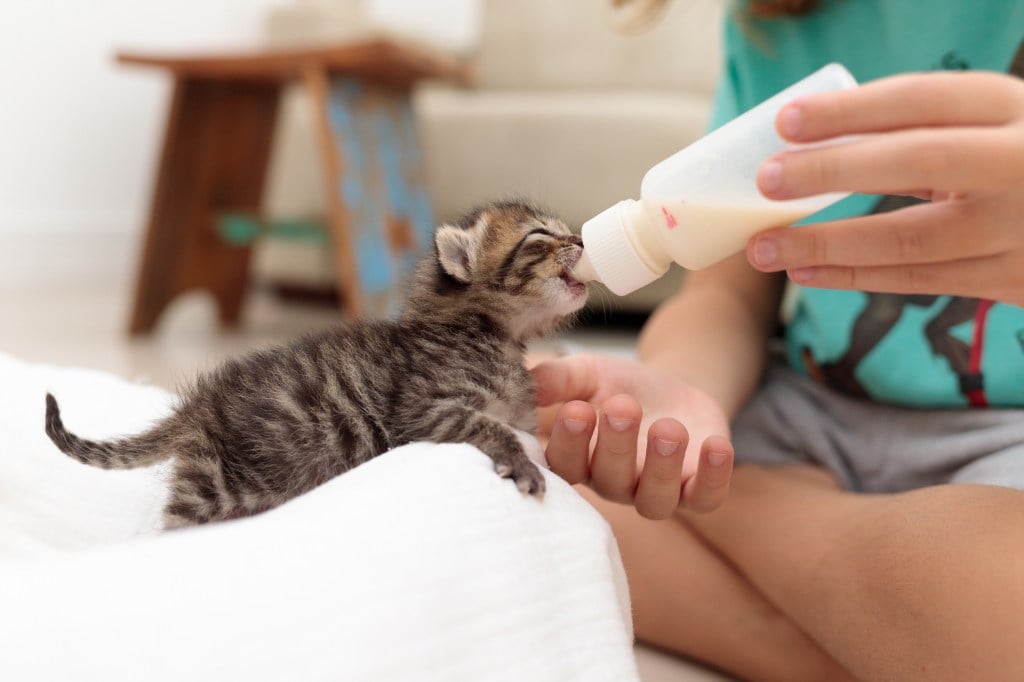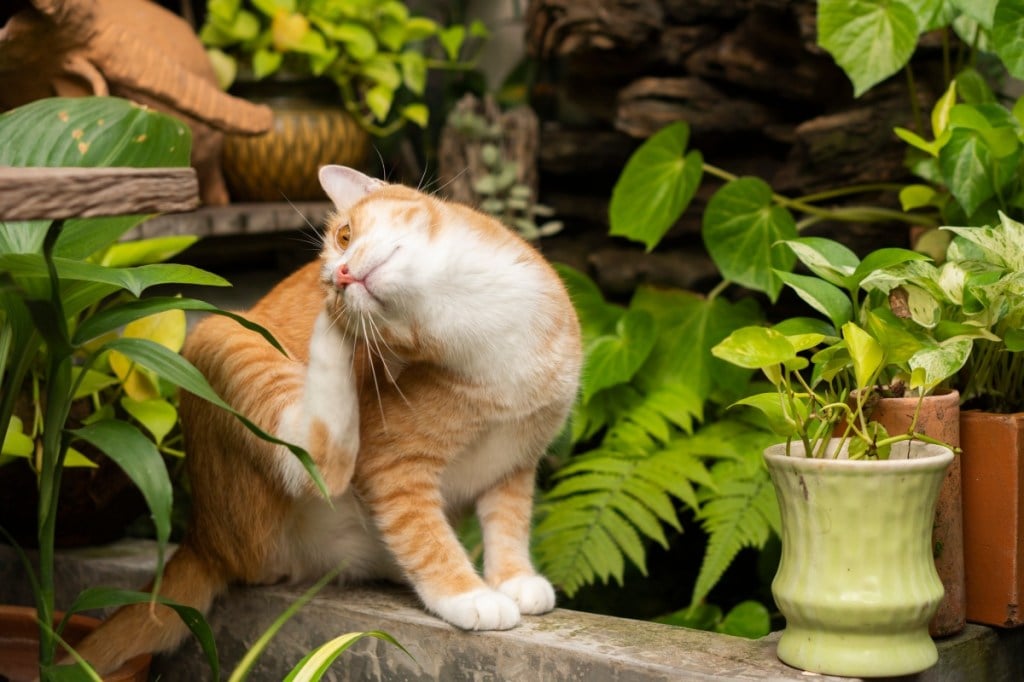Table of Contents

Roundworms are the most common intestinal parasite cats (and dogs) can get, and many cats will get them at some point in their lives. The 3- to 5-inch long worms live in the cat’s intestines, where they live on food the cat has eaten. Your cat can get roundworms from feces or a contaminated environment, or by eating mice and other small animals that carry larvae. Kittens may also become infected via their mother’s milk.
The Companion Animal Parasite Council (CAPC) says that because there are several ways your cat can pick up roundworms, the worms are hard to control and easy to spread.
Symptoms include:
- Dull coat
- Coughing
- Vomiting
- Diarrhea
- Mucousy or bloody feces
- Loss of appetite
- Pale mucous membranes
- Potbellied appearance
You may also see the white or light brown adult roundworms in your cat’s vomit or feces. Diagnosis of a roundworm infection is made via a stool exam.
Intestinal parasites such as roundworms can weaken your cat and make him more susceptible to bacterial and viral infections. If untreated, roundworm infections may cause anemia (low red blood cell count) or even an intestinal blockage.
Treatment
Deworming medications are safe, easy to use and are relatively inexpensive. Since these medications don’t treat larvae, you will need to treat your cat two or three times, typically at two or three-week intervals.
Practice year-round prevention by using oral medication or topical preventives such as Revolution, which provides protection from roundworms as well as hookworms, ear mites, fleas and heartworm disease.
Preventative Measures
- You can minimize the likelihood of your cat being infected with roundworms by keeping her indoors, away from a contaminated environment, and preventing her from hunting and eating wild animals that carry the worms.
- Proper sanitation is also important. Feces should be promptly removed from litter boxes. Clean the litter box with a solution of one cup chlorine bleach in one gallon of water. The CAPC says this doesn’t kill the eggs but makes it easier to rinse them away. Be sure to rinse the box thoroughly because bleach is toxic to cats.
- Be sure to wear gloves when you clean the litter box and wash your hands thoroughly afterward. Wear gloves when working in the garden because outdoor cats may be using it as a litter box.
Can I get Roundworms from My Cat?
Humans can get roundworms from contact with feces or contaminated soil, and The Centers for Disease Control and Prevention says children and the owners of dogs or cats have a higher chance of becoming infected. Many people who become infected don’t have symptoms and don’t get sick, but some people (usually children) experience fatigue, fever, coughing, wheezing or abdominal pain. They may also experience eye inflammation or vision loss. Antiparasitic medications are used to treat the infection.
The CDC recommends that you wash your hands with soap and water after playing with your cat, after engaging in outdoor activities, and before handling food. Do not let your children play in areas where animals may have passed feces. Be sure to cover sandboxes so animals can’t get inside and contaminate them. Teach your children that it’s dangerous to eat dirt and stress the importance of handwashing.
By enrolling your cat early, conditions and illnesses like parasite infection treatments will be covered up to 90% by your Healthy Paws pet insurance. Find out more by getting a free quote.
The content is not intended to be a substitute for professional veterinarian advice, diagnosis, or treatment. Always seek the advice of your veterinarian or other qualified health provider with any questions you may have regarding a medical diagnosis, condition, or treatment options.








